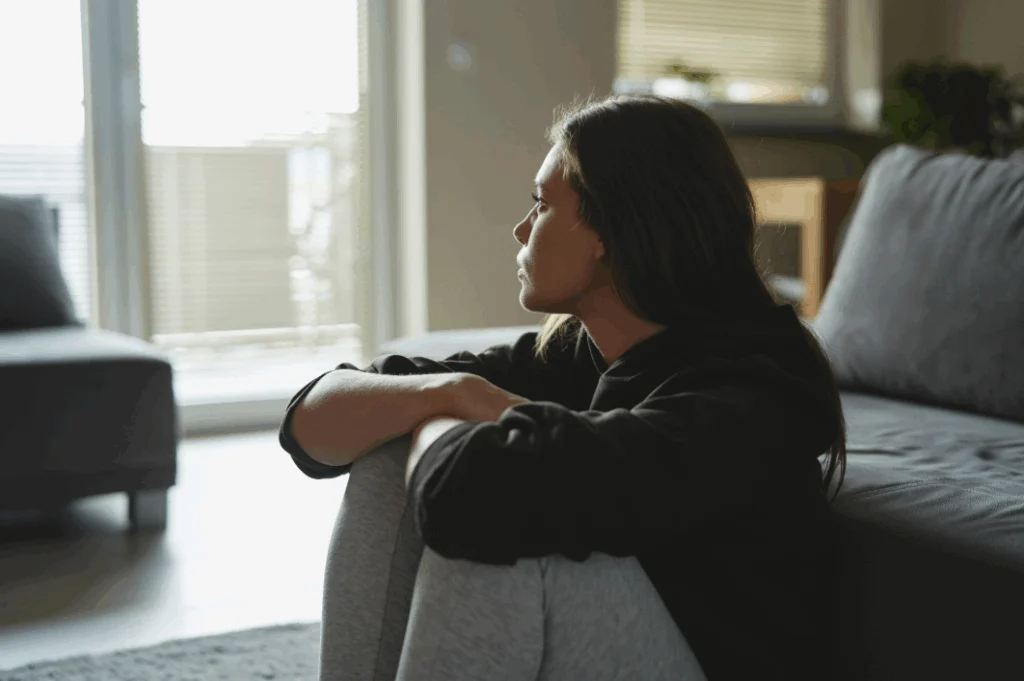
Why Women Find It Difficult to Leave Domestic Abuse Relationships
07/08/2025

Chris English
By Hardeep Roud
Why Women Find It Difficult to Leave Domestic Abuse Relationships
Leaving an abusive relationship is never a simple choice. While outsiders may wonder, “Why doesn’t she just leave?”, the reality is far more complex. Survivors of domestic abuse often face a web of emotional, psychological, financial, and social barriers that can make leaving feel not only overwhelming, but potentially life-threatening. Fear is one of the most powerful forces keeping women in abusive relationships. Abusers frequently escalate their behavior to maintain power and control, using threats of severe harm, or even death, to trap their victims. Tragically, this fear is not unfounded: statistics show that between 2020 and 2022, 186 women were murdered by their male partner or ex-partner in England and Wales.
There exists a cycle of abuse, which can distort a victim’s perception of the relationship, creating confusion and a false sense of hope or normalcy, again making it difficult for them to leave the relationship.
The cycle:
- Tension Building: This stage involves the gradual buildup of stress and tension. The abuser may become irritable, controlling, or emotionally distant. Victims often feel anxious, or like they are walking on eggshells to avoid conflict.
- Incident of Abuse: The tension culminates in an abusive incident, which can involve physical, emotional, verbal, or sexual abuse. The victim may blame themselves for the incident or feel trapped.
- Reconciliation: After the abuse, the abuser may apologise, show remorse, or offer excuses. They may give gifts or make promises to change. This can confuse the victim as hope for improvement emerges and emotional bonds may strengthen.
- Calm (Honeymoon Phase): The relationship seems peaceful and joyous. The abuser may be affectionate and attentive, leading the victim to believe the abuse was an isolated event. However, the cycle often repeats, with tension gradually building. This pattern reinforces control and dependency, making it difficult for the victim to leave.
The following are some of the reasons women find it hard to leave an abusive relationship:
Emotional manipulation
A common tactic abusers use is gaslighting; a form of psychological abuse designed to make a woman question her own memory, perception, and sanity. Over time, this constant self-doubt erodes her confidence and makes her increasingly dependent on the abuser’s version of reality, making it even harder for her to recognise the abuse.
Financial dependence
Many women are placed in gender-stereotyped roles, such as caring for children or managing the household, limiting their access to employment and financial independence. As a result, they are often forced to rely on their abuser for basic needs who controls all financial resources. This control can leave victims feeling trapped, unable to secure housing, childcare, or necessities without the abuser’s permission.
Social stigma and isolation
By cutting a victim off from her support network, the abuser ensures she has no one to turn to for help, deepening her dependence on the abuser and reinforcing the feeling that escape is impossible. Cultural attitudes and societal beliefs can further compound the issue. In some communities, women are discouraged from speaking out due to feelings of shame, guilt, or pressure to uphold cultural or religious expectations. Victims may be blamed for the abuse, dismissed, or not believed, further silencing them and reinforcing the cycle of control and fear.
Psychological Barriers
Psychological barriers act as invisible yet powerful chains that keep victims trapped in abusive relationships. Feelings of fear, shame, self-doubt, and emotional dependency can erode a woman’s sense of autonomy and self-worth, leaving her feeling powerless to change the situation. These psychological effects can make the idea of leaving feel almost impossible.
Legal and Custody Challenges
Child custody battles offer a new avenue to continue the cycle of abuse under the guise of legal proceedings. In the courtroom, control can take the form of demands for full custody, intimidation, withholding financial support and using shared custody to exert power. Rather than providing safety, legal systems can sometimes trap women further in the abuse. Research shows that women often continue to experience domestic abuse during and after custody arrangements, with risk increasing significantly when they are legally required to maintain contact with their abuser. In many cases, children are weaponised; used as leverage to manipulate, threaten, and emotionally harm the mother long after the relationship has ended.